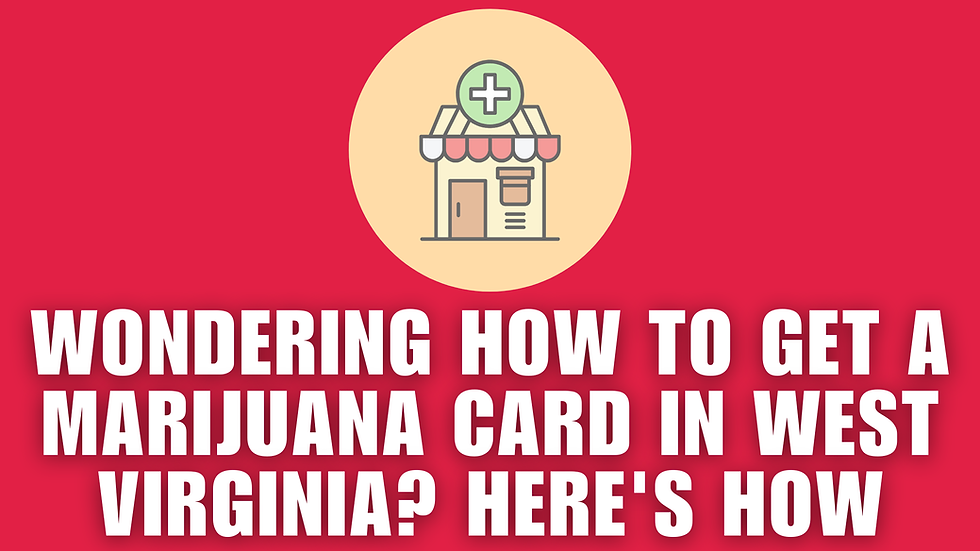How Medical Marijuana Can Help Chronic or Intractable Pain
- Olivia Castro
- Dec 21, 2020
- 2 min read

Over two-thirds of patients seeking a medical marijuana card report chronic or intractable pain as their primary qualifying condition. But what is chronic or intractable pain exactly?
What Constitutes as Chronic or Intractable Pain?
Everyone experiences pain. However, qualifying for a recommendation for medical marijuana treatment is not as simple as a patient having a mild headache one day and receiving a card the next.
Pain falls into one of two general categories: chronic or intractable. Chronic pain is characterized as pain lasting for more than 12 weeks (3 months) often without a definable endpoint. Chronic pain can be further classified as chronic primary pain (such the pain experienced with fibromyalgia), chronic cancer pain, chronic postsurgical and posttraumatic pain, chronic neuropathic pain, chronic headache or orofacial pain (migraines), chronic visceral pain (inflammatory bowel disease), and chronic musculoskeletal pain. Intractable Pain is severe chronic pain that is constant and excruciating. Unlike chronic pain, the conditions that cause intractable pain can cause sufferers to be bed ridden or even hospitalized.
Medical Marijuana and Pain
Patients must demonstrate to their medical marijuana doctor, through medical records and documentation, that their pain has been an ongoing issue.
Many patients with chronic or intractable pain turn to medical marijuana as treatment as they have exhausted other methods of treatment. Medical cannabis is a promising alternative for treating pain. Research has shown that THC is an effective pain reliever for cancer patients and they also found that it lacked the toxic side effects found in many traditional medicines. Patients have reported relief from a wide-variety of types of pain.
How Medical Marijuana Can Help
Medical marijuana can be helpful for any of the following conditions associated with chronic pain:
Cancer pain
Neuropathic pain
Lower back pain
Osteoarthritis
Fibromyalgia
Multiple Sclerosis
Rheumatoid arthritis
Migraines
Neck pain
Accident and injury-related pain
Post-surgical pain
There is not cure for intractable pain and the treatments for it are often only bring about mild relief. Medical marijuana can help alleviate the following symptoms:
Nausea
Chronic pain
Insomnia
Fatigue
Depression & anxiety
What is the Best Method to Treat My Chronic Pain with Cannabis?
When you schedule your medical marijuana evaluation, your doctor will be able to suggest a variety of treatment options, based upon your pain and condition. For some patients, topicals may work best, while others may prefer to inhale or consume medical marijuana. It is always best to speak with your doctor as well as the professionals at dispensaries for the right products and doses for your needs.

If you are a West Virginia resident suffering from a medical condition you think may benefit cannabis, you're likely eligible for medical marijuana treatment.
Click here to learn more about what West Virginia Marijuana Card's state-certified medical marijuana doctors can do for you, or give us a call at (877) 303-8424 and our friendly support team can walk you through the entire process and schedule you for an evaluation appointment.




Comments